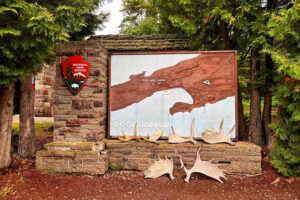One of anthropology’s most enduring controversies is how exactly Homo sapiens replaced the Neanderthals that dominated the continent that became Europe.
A study in Plos One suggests that Homo sapiens needed three attempts across 12,000 years to finally wrest control from their predecessors. This slow-moving colonization took place between 54,000 and 42,000 years ago, according to the paper’s authors, who studied ancient artifacts from caves in France’s Rhone Valley.
“The first two of these waves failed but the third succeeded around 42,000 years ago,” Ludovic Slimak of the University of Toulouse, who is leading the excavations in France, told The Guardian. “After that, modern humans took over in Europe. The Neanderthals, who had evolved on the continent, died out.”
Slimak and his colleagues say they’ve found evidence that Homo sapiens arrived in Europe from western Asia. The colonizations took much longer than historians have previously thought, requiring travel along the Mediterranean before turning north toward the Rhone Valley.

A skull of a Neanderthal. New research questions whether they or ‘Homo sapiens’ were responsible for critical sets of advanced tools found in the areas they inhabited. Photo: Shutterstock
Whose tools are these?
Even more controversial than the timeline is the paper’s assertion about the Châtelperronian tools.
These prehistoric stone tools uncovered in central France in the 19th century have long been associated with Neanderthals. The well-made blades have a sophisticated construction for the period, and some scientists believe they offer proof that Neanderthals could craft advanced tools.
But Slimak and his colleagues don’t think so. The tools are more likely the work of Homo sapiens, they argue.
“The Châtelperronian tools are the handiwork of modern humans, and given their similarity to stone tools that were being made in the Middle East, we conclude they were brought there by Homo sapiens as they moved into Europe,” Slimak told The Guardian.
Slimak also believes that our ancestors arrived in Europe with bows and arrows that would have trumped the weapons used by Neanderthals.
So why did it take us so long to take over? Slimak says early Homo sapiens likely lacked sufficient numbers until the third colonization attempt.
“The third time they came in, modern humans did so with a really huge wave of people and began to build social networks, not with Neanderthals but with individual small separate groups of Homo sapiens in order to build a huge network throughout Europe,” Slimak said. “And in the end, that is what started the decline of the Neanderthals in Europe.”






